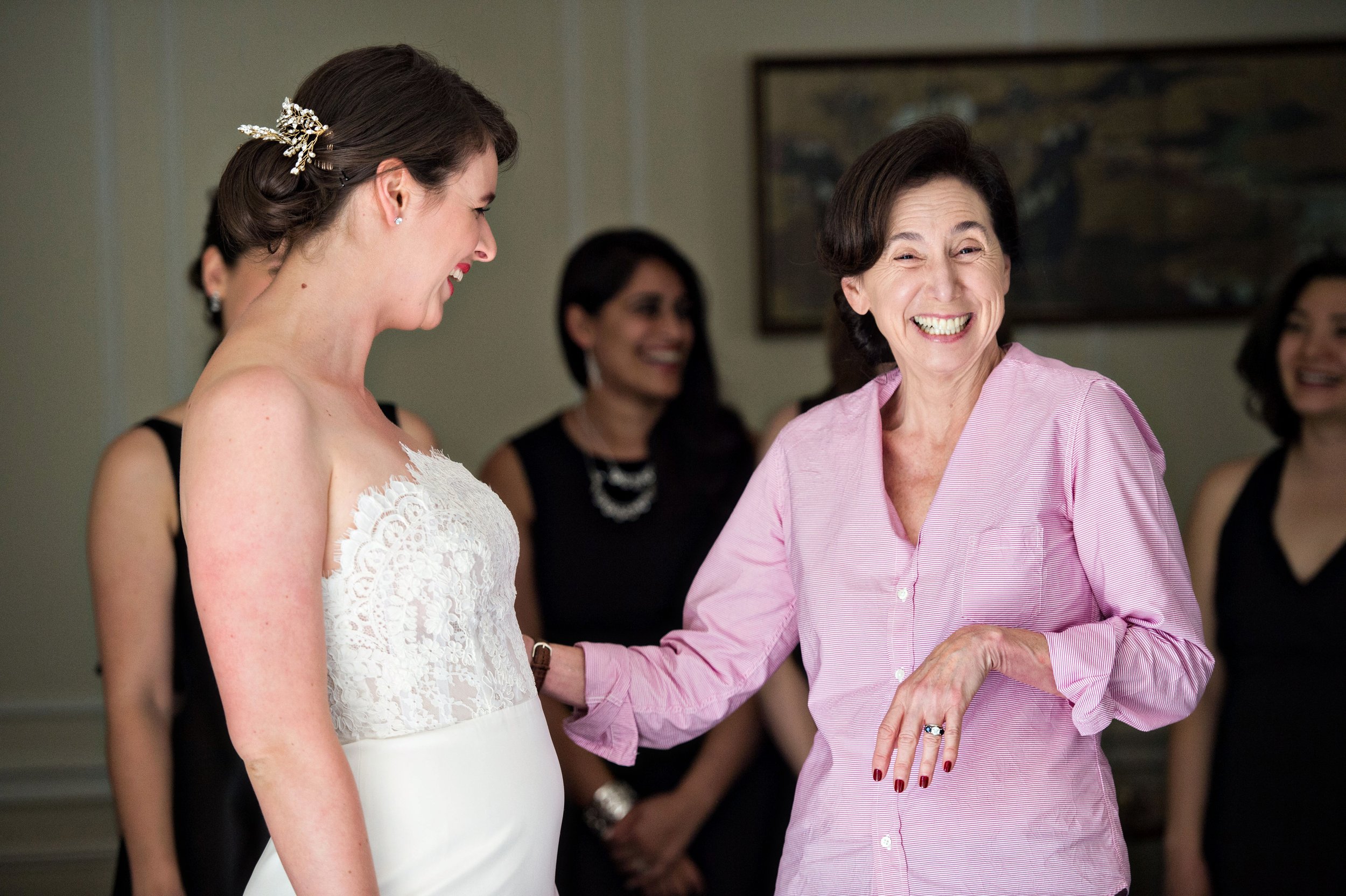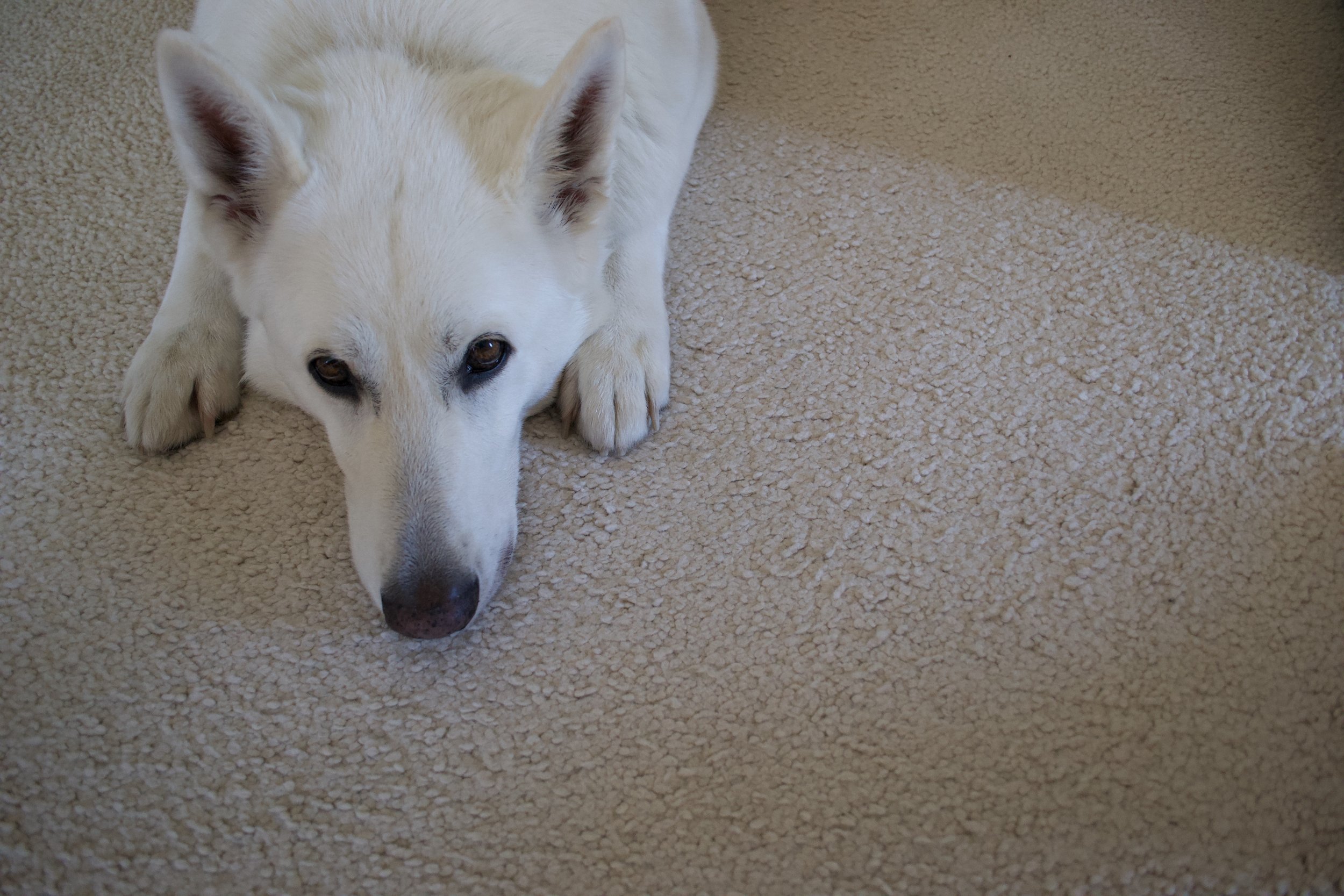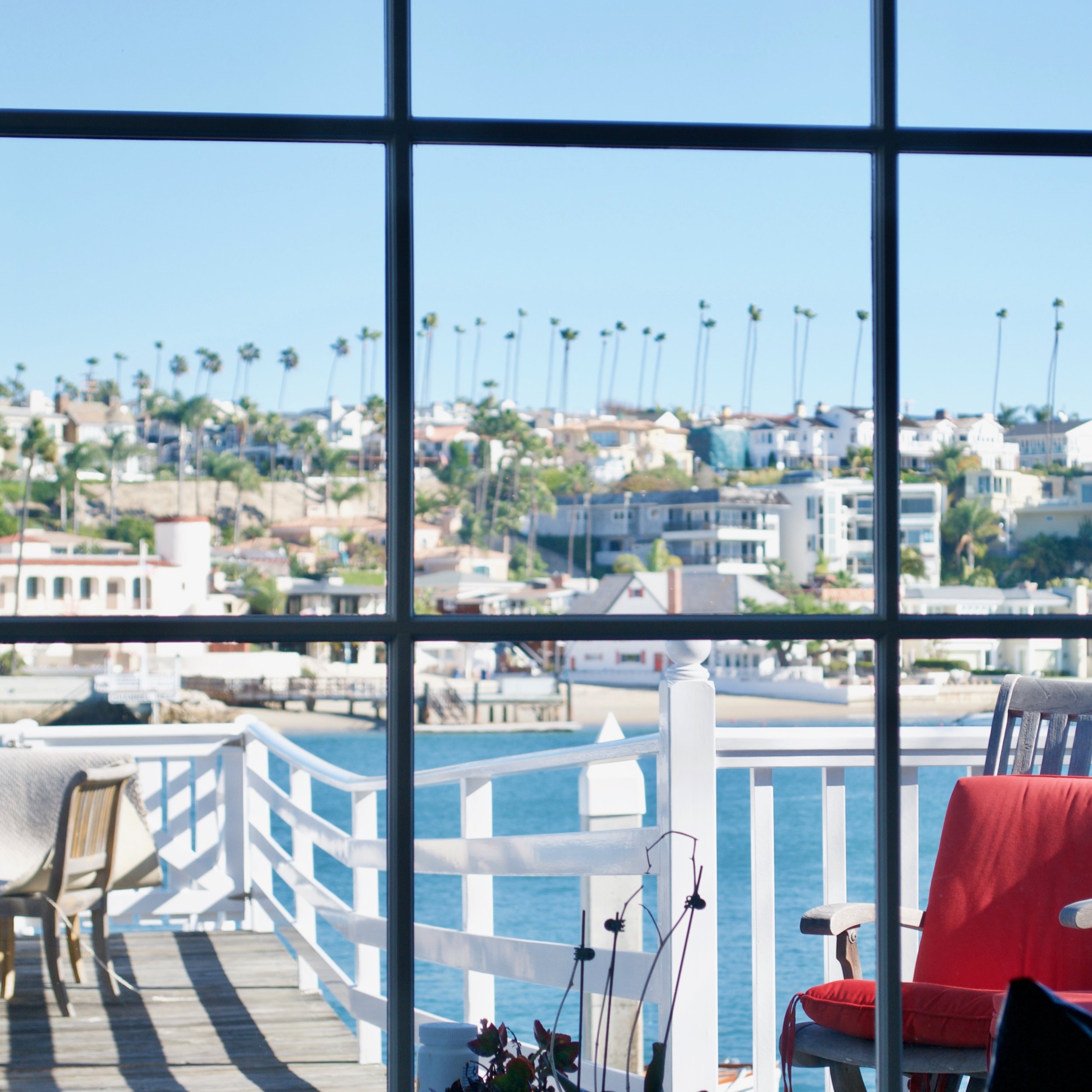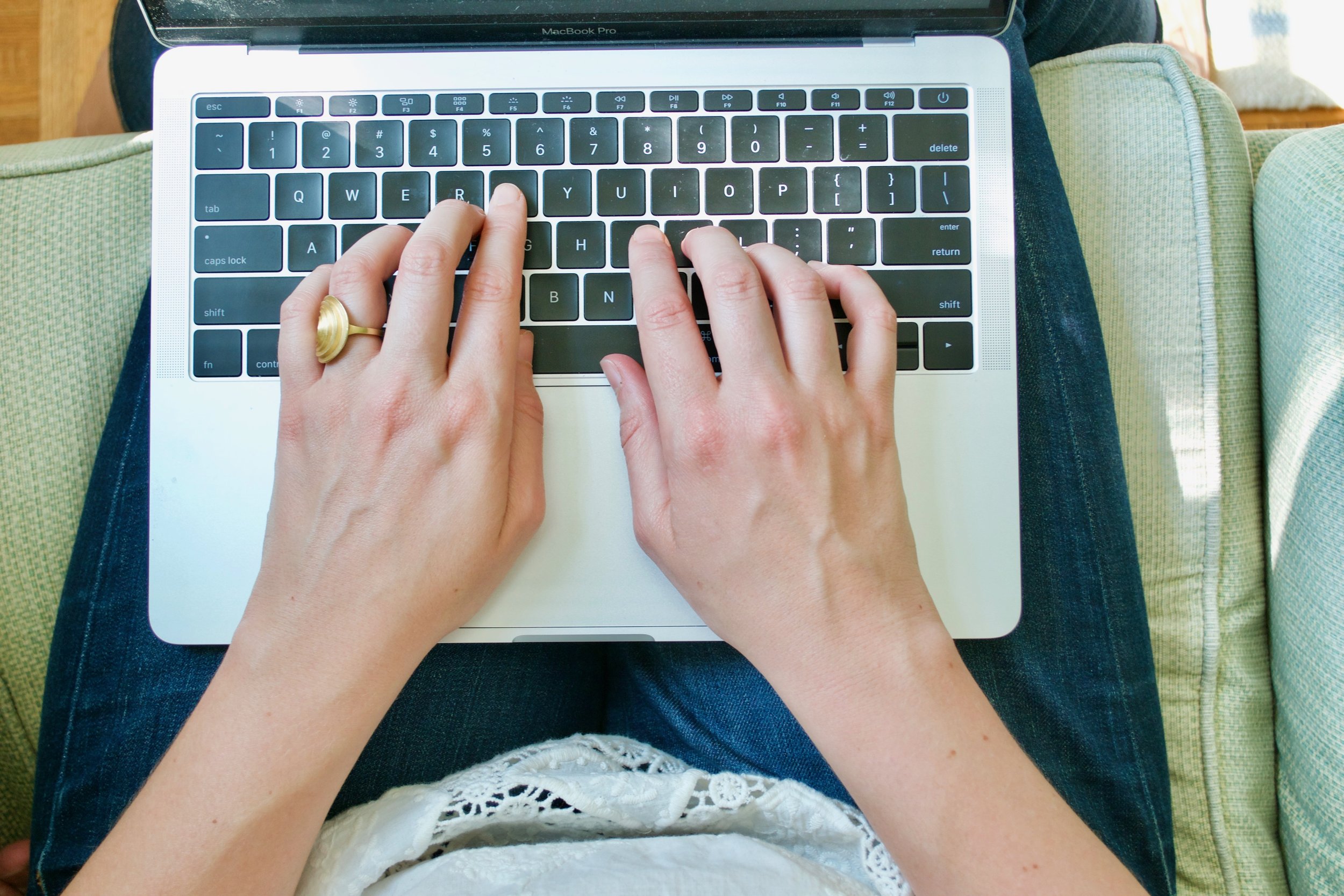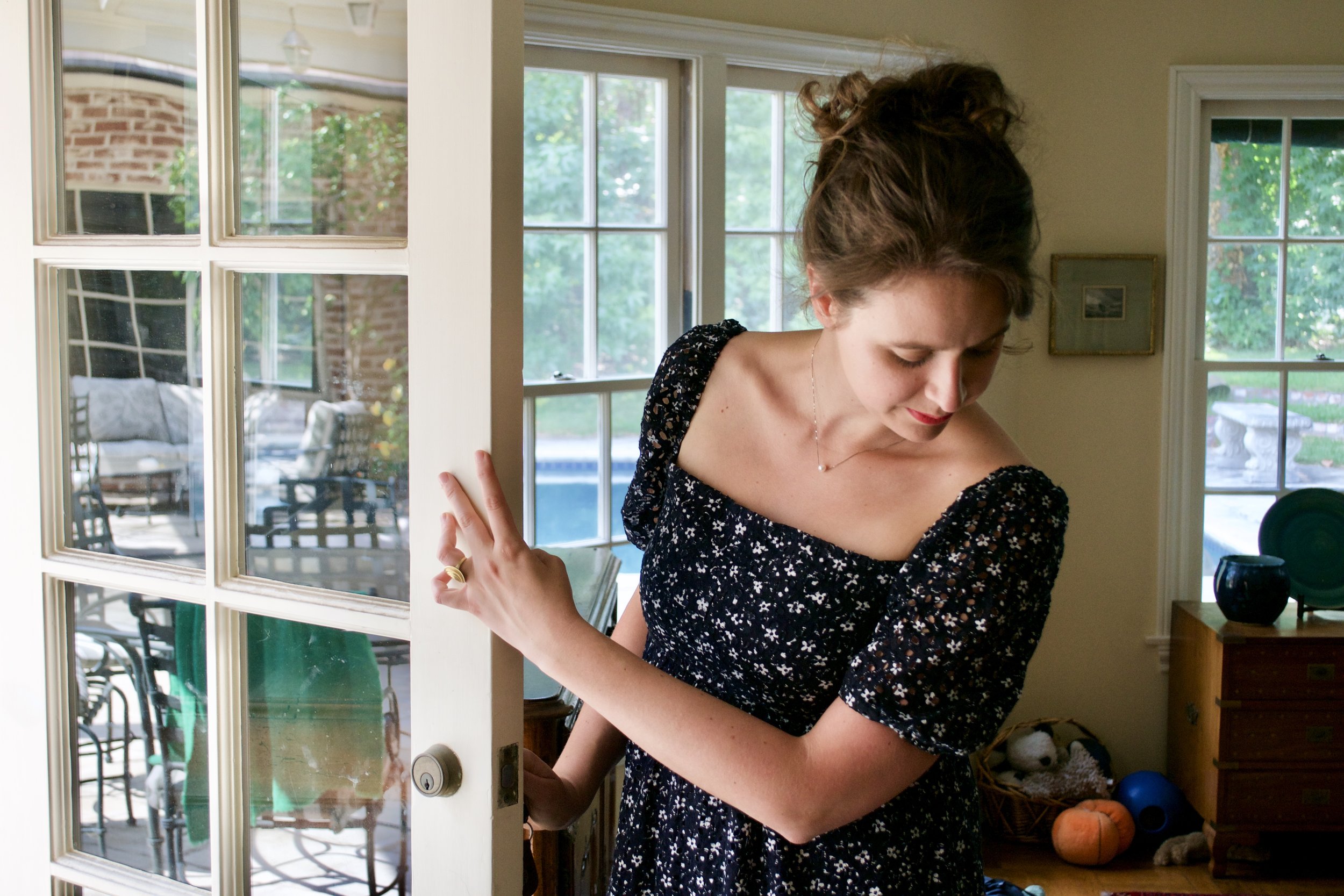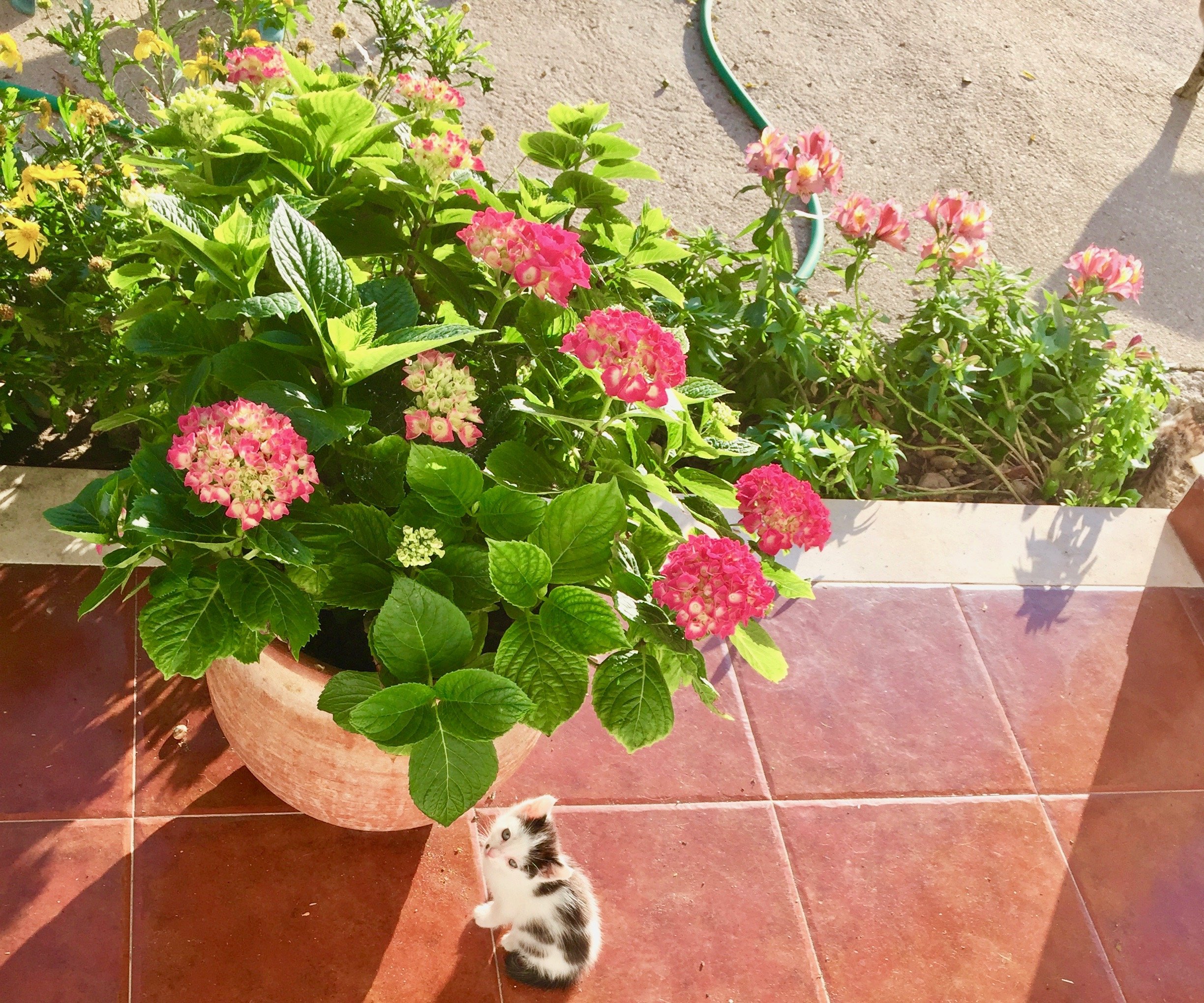Blog
One of my role models
I originally wrote this in 2015, but wanted to re-share it, with some edits, in honor of Mother’s Day, and because a newsletter reader recently told me that it was her favorite piece I’ve ever written. (Ever! What an honor!)
…
I learned about exercise by watching my mom.
For my entire life, my mom has taken daily, 3-mile walks. She’s not fancy or precious about it – she just laces up her sneakers, wears old shorts and a t-shirt, and walks the same route in our neighborhood every single day.
It takes her about 45 minutes. But if she doesn’t have much time, she’ll squeeze in a 20- or 30-minute walk.
That’s it.
Here is a photo of me and my mom, before my wedding.
The thing that I have come to appreciate, particularly as I’ve gotten older, is how un-fussy and easy she is about it.
She’s not looking for a form of exercise that is painful, or that she dreads.
On the contrary, she walks because it makes her feel good – it clears her mind and makes her feel calm and happy.
She likes being outside, and she doesn’t have time to drive to an exercise class.
Of course, she also does it because it’s good exercise. Walking nearly every day for most of her life has helped her to stay fit and healthy and looking good, in my humble daughterly opinion (hi mom!). But walking isn’t something that is intensely painful or only feels good “after.” It feels good from the first step.
Part of the reason I wanted to share my mom’s story is because I’ve come to realize how deeply powerful behavioral modeling can be. It’s one thing to “get” something intellectually, and it’s a very different thing to see it in action, over and over.
I saw my mom lace up her sneakers, walk out the front door, and return revived and refreshed, every day of my life.
It wasn’t a big deal.
It wasn’t hard or painful.
It didn’t take much time.
It didn’t cost anything.
It didn’t require a ton of willpower.
She liked it, it was easy and felt good. So she did it every day.
I think that too often the “role models” for fitness that we see and think we should aspire to are people who are running marathons, or who have perfectly toned arms or six-pack abs. We think that we're supposed to want and work toward that level of fitness.
And we often think that it has to be time-consuming, expensive, complicated, or painful.
My mom showed me a different way.
Of course, I’ve tried intense workouts over the years. And I do enjoy a Pilates or yoga class once or twice a week, even though I have to drive to them, and they cost money.
But I always come back to my daily walk.
So I wanted to share it with you. Both to talk about exercise and about role models in general.
To talk about exercise: I don’t see this approach to exercise –moderate, super-easy, not-painful, cheap, and pleasant – advertised as much as I think it should be. With that in mind, my challenge for you this week is to take a walk. I mean it. If you live in a place where it is safe to do so, put on those sneakers, get outside, and move in a way that isn't hard.
To talk about role models: So often, our role models are super-intense, at-the-top-of-their-fields, could-be-on-the-cover-of-a-magazine kind of people. But is that who our role models should truly be?
As always, I’m rooting for you. You’ve got this.
Katie
If this essay resonated with you, you'll love my newsletter. Sign up for free + get new ideas every Sunday!
Initiating in friendships + other relationships
Often, in friendships and relationships, there’s someone who initiates more.
This can be a tricky topic. People who notice that they’re reaching out more can feel unappreciated, and unvalued. They might pull back.
And sometimes that’s appropriate — maybe the other person doesn’t value the relationship as much.
But at other times, as Shasta Nelson points out in her book Frientimacy: How to Deepen Friendships for Lifelong Health and Happiness, just because someone initiates less, doesn’t necessarily mean they want to spend less time together. Maybe the other person is actually just shyer, or less practiced at reaching out. Maybe they get caught up in work more than is good for them.
Maybe they really appreciate the initiative!
So today, I just wanted to offer you something short and sweet: can you thank someone in your life who initiates?
Nelson even offers a lovely little script for what that might sound like:
“It means so much to me that you invite me out so often. I always love our time together and am so grateful that you reach out. I’m so sorry that I’m not very good at giving that same gift back to you, but I want you to know how very glad I am that you haven’t let that stop you from initiating. Thank you!”
Who deserves a thank you in your life, for initiating more often?
As always, you’ve got this. I’m rooting for you.
Katie
p.s. And, of course, sometimes we don’t initiate as much as the other person because… well, seeing them so frequently isn’t our top priority. That’s okay, too! But this exercise is about gratitude for someone whose more frequent initiation you do value.
If this essay resonated with you, you'll love my newsletter. Sign up for free + get new ideas every Sunday!
Not a fan of 5-year-plans? Here's some other goal setting strategies to try
Some time ago, a coach whom I’d met socially suggested that we get lunch. Over tasty cold noodles in Koreatown, we both talked about our coaching practices, our training, and life in general.
Then she asked me what my five-year plan was.
“I don’t have a five-year plan,” I told her simply. “I mean, I have ideas for things I want to do. I know how I want to feel. But I don’t have a precise five-year goal or plan.”
“Me neither,” she confessed, laughing a little. “Isn’t it weird how we’re always trying to get our clients to set goals like that, but we don’t make them ourselves?”
I shrugged. “I don’t ask my clients to set five year plans.”
I think about this conversation a lot. Part of our difference in perspective was due to the diversity of coaches in the world (I wrote more about that here) — she and I had trained in different coaching methodologies and coached in very different ways.
But also, I wouldn’t be surprised if she urged clients to set five-year plans because the idea of a five-year plan is so darn alluring. Many people seek out coaching because they feel lost, stuck, or frustrated in their lives, and the idea of having an official, precise “plan” can feel like a very neat resolution to that problem.
To be clear, I’m not opposed to five-year plans — there are times when they can be essential, and I’m happy to support clients in creating them when appropriate.
But also, the reality of life is that it’s often not linear. We often can’t truly see eighteen steps ahead. We can create a shiny and precise five-year plan, and then it doesn’t actually make sense for us six months later.
So, in that spirit, I wanted to share a couple of alternative ideas, for when you’re craving a five-year plan:
Get clear on your next right step, and take it.
Five-year plans are fantastic, but many of us know what our next right step (or two, or three) is… and we’re still not taking it. We could make a list of the things we know we know that we definitely want to move forward on… and we’re not doing those things.
I don’t say this to make you feel embarrassed. I say this because just executing our next right step is often friggin’ hard and surprisingly complex — it requires overcoming not insubstantial obstacles, internally or externally. So rather than dreaming twenty-four steps in the future, why not spend that time really going deep on why that single next right step hasn’t happened yet?
Ask yourself: Am I taking care of my basics?
Sometimes, we’re feeling anxious or stressed or disappointed in ourselves not because we’re actually totally off in life, but rather because we haven’t been taking care of the essential basics.
These basics will vary from person to person — maybe we haven’t been sleeping, eating well, taking breaks, or moving — or maybe we’ve been spending too much time on screens. For me, my “basics” also means that I’m putting in at least some time on projects that may not be urgent, but really matter to me. This and this are some ideas for “basics” to start with.Strengthen your Inner Compass
Many of us want a five year plan because we feel like: (1) we’re going in the wrong direction in our lives, or (2) we don’t know what direction to go in. In other words, we feel disconnected from our Inner Compasses, which tell us the right direction to go in. (I know that feeling well!)
Having a strong Inner Compass is, in my opinion, more useful than a 5-year plan; a functional Inner Compass should be a highly flexible instrument that will help you get yourself pointed in the right direction now, and make all of the many, many course adjustments that will be needed as you move forward. It’s something that I often work with my coaching clients on in a lot of detail, but here are a couple of ways to get started on your own (one, two, three).
I’d take a strong inner compass over a five-year plan any day because an Inner Compass is inherently flexible — it’s capable of taking in new information, and adjusting.Remind yourself: We’re all just figuring it out, one step at a time.
Or just read this killer Joseph Campbell quote.
…
And if you still want to make a five-year plan, great! It can be an incredibly useful tool. I just don’t think it’s a requirement for a satisfying or productive life.
I’m rooting for you. You’ve got this.
Katie
If this essay resonated with you, you'll love my newsletter. Sign up for free + get new ideas every Sunday!
Zing! Here's one reason why you are struggling to communicate with your partner (or family or friends)
First of all, how are you? You’ve been in my thoughts.
I’ve been okay — I feel lucky that I and most people I know are healthy. But it feels like anxiety about our global situation which is in the air right now, and I didn’t want to just plunge straight into the newsletter, like usual. I’m pregnant — my husband and I are expecting twins, this June — and it feels strange to think about expecting new life and such a life transition, in the midst of such an uncertain moment.
I wanted to send you something that might be useful in this time; and above all, please know that I’m rooting for you — and for all of us — right now. Take care, everyone.
Here’s something that slapped me in the face recently, and that might be particularly relevant in our era spending-a-particularly-large-amount-of-time-at-home-with-people-we-love (aka COVID-19):
“If you don’t have a question, don’t ask a question. Never dress up an assertion as a question. Doing so creates confusion and resentment, because such questions are inevitably heard as sarcastic and sometimes mean-spirited.” (172, emphasis mine)
That’s from Difficult Conversations, by Douglas Stone, Bruce Patton, and Sheila Heen. Here’s a couple of examples they give, of questions that are actually just “dressed up” assertions:
“Are you going to leave the refrigerator door open like that?”
“Is it impossible for you focus on me just once?”
“Do you have to drive so fast?”
Stone, Patton, and Heen point out that all of these questions are actually disguised versions of feelings or requests. Here is how the same questions might be said, as assertions:
Instead of Is it impossible for you focus on me just once?: “I feel ignored” or “I’d like for you to pay more attention to me”
Instead of Are you going to leave the refrigerator door open like that?: “Please close the refrigerator door” or “I feel frustrated when you leave the refrigerator door open”
Instead of Do you have to drive so fast?: “I’m feeling nervous” or “It’s hard for me to relax when I’m not in control”
And (this is really the zinger) the authors point out that there is, in fact, a reason, why we didn’t just start with the more direct request or expression of feelings — because it makes us feel vulnerable. “Turning what we have to say into an attack — a sarcastic question — can feel safer,” they point out.
But there’s a serious downside of hiding our vulnerable requests or emotions as questions: the other person is likely to miss the underlying feeling or request.
Instead, all of their energy will be focused on the sarcasm and attack that they likely heard (or felt that they heard) within that question. “Instead of hearing that you feel lonely, they hear that you think they are thoughtless,” Stone, Patton, and Heen point out. The other person is so focused on defending themselves, that they often don’t attend to your needs.
Think about it. What are you more likely to respond with compassion and care to:
Do you think you’ll ever get around to fixing that broken lamp?
Or
I’m feeling kind of anxious and having our light fixed would really help me feel calmer.
So here’s Stone, Patton, and Heen’s advice, again, now that you know why they recommend it:
“If you don’t have a question, don’t ask a question. Never dress up an assertion as a question. Doing so creates confusion and resentment, because such questions are inevitably heard as sarcastic and sometimes mean-spirited.” (172)
To be honest, within hours of reading this advice, I noticed myself saying a question that was actually an assertion. Zing, indeed.
So that’s my question for you this weekend: Can you listen to your questions in the hours or days ahead? What questions could actually be phrased — more authentically, more vulnerably, more usefully — as assertions?
As always, you’ve got this. I’m rooting for you.
Katie
If this essay resonated with you, you'll love my newsletter. Sign up for free + get new ideas every Sunday!
One way to improve your sense of belonging - that doesn't require anyone else to do anything
Belonging is something that most of us crave.
The sense that we’re held + safe within a community that cares for us — there’s certainly nothing more primal. The lack of it, and we ache.
So often, we can feel that we need to change ourselves, mold ourselves, to a community to find that belonging. Chop ourselves down, or add bulky armor that never quite feels real.
And yet, my favorite thoughts on belonging point to a different way. In Brené Brown’s Braving the Wilderness, she shares a conversation between Bill Moyers and Maya Angelou, on public television in 1973:
Moyers: Do you belong anywhere?
Angelou: I haven’t yet.
Moyers: Do you belong to anyone?
Angelou: More and more. I mean, I belong to myself. I’m very proud of that. I am very much concerned about how I look at Maya. I like Maya very much. I like the humor and courage very much. And when I find myself acting in a way that isn’t…that doesn’t please me — then I have to deal with that.
This exchange, and Angelou’s wisdom, has been swirling inside of me recently. So often, we define “belonging” as something that’s about other people, about what people outside of ourselves do or do not give us.
But what if the only “belonging” that truly matter is whether you belong to yourself?
So I’ll ask: do you belong to yourself? If not, why not?
As always, I’m rooting for you. You’ve got this.
Katie
If this essay resonated with you, you'll love my newsletter. Sign up for free + get new ideas every Sunday!
A reminder for when it feels like other people are getting ahead of you in life
Here’s a reminder:
You’re allowed to go at your own pace.
And even: You may not have a choice, but to go at your own pace.
Other people may seem like they’re sailing through — making the smart decisions, getting the great opportunities, doing so well with their career and relationships and art and bodies. And that’s great.
But your journey may not be so linear, and it may not be so fast.
This is not to say that you shouldn’t try. This isn’t to say that you shouldn’t make changes when appropriate, do deep self-examination, and put in the work.
But it is to say that your pace may be different than theirs, and that’s allowed. And more than “allowed,” it may be inescapable. Inevitable.
Sure, we may not be grateful for the roadblocks and wrong turns and burdens that have slowed us down. But our pace is our pace.
How does it feel to at least stop fighting it?
I know you’ve got this.
Katie
If this essay resonated with you, you'll love my newsletter. Sign up for free + get new ideas every Sunday!
What a 17th century French mathematician has to teach us about digital distraction
Here’s something that I can’t get out of my mind recently:
“All of humanity’s problems stem from man’s inability to sit quietly in a room alone.”
— Blaise Pascal
Pascal’s quote is fundamentally about solitude and connecting with yourself. Living in the early-to-mid 1600s, he defined solitude as sitting quietly in a room alone. Which makes sense — at that time, there wasn’t much you could do except connect with yourself when you were in a room alone.
In 2019, by contrast, you can be in a room alone, and yet not be truly alone. If you’re reading the news or watching Netflix or scrolling social media, you can avoid any kind of connection with yourself.
This quote made me wonder: Sure, most of us in 2019 evade solitude by using technology. But is the desire to evade true solitude even more fundamental than that? Have we always avoided the uncomfortable feelings and thoughts that can come up when we’re alone?
I get why we do it. And yet, solitude can be so helpful for shifting from being reactive to being intentional, processing feelings, doing focused work, and thinking big picture.
What do we gain when we avoid true solitude? And what do we lose?
As always, I’m rooting for you. You’ve got this.
Katie
If this essay resonated with you, you'll love my newsletter. Sign up for free + get new ideas every Sunday!
An easier way to improve productivity
Here’s something I try to live by:
Anything worth doing is worth doing badly.
You know that project you’ve been meaning to work on more?
That person you’ve been meaning to talk to?
That exercise class you’ve been meaning to go to?
If it’s worth doing, it’s worth doing badly.
I’m not against having standards, but so often we don’t actually do the friggin’ thing because we are afraid it will go… badly. Or weirdly. Or not-excellently.
If we write that novel despite feeling uninspired, it will be cringe-worthy.
If we say I’m sorry or I love you or I wish we talked more, it will be awkward to get the words out.
If we show up at the exercise class, we’ll barely be able to do 35%.
And yet:
Isn’t writing a cringe-worthy novel better than always wondering if we could?
Isn’t fumbling the words to “I miss you” or “we need to talk” better than letting those feelings stay unsaid?
Isn’t showing up and letting ourselves look sweaty and foolish better than…not?
Isn’t anything worth doing, worth doing badly?
So here’s my invitation for you, this week: What in your life is worth doing? Could you let yourself do it badly?
As always, you’ve got this. I’m rooting for you.
Katie
If this essay resonated with you, you'll love my newsletter. Sign up for free + get new ideas every Sunday!
Unplugging from technology + Technology Overuse Syndrome (TOS) (Which I made up, but is also real)
I’d like to name a condition. It’s not a new condition, but I’m not sure that it has an official name and I think it needs one. I’m calling it Technology Overuse Syndrome (TOS), and here are the symptoms that I’ve noticed in myself:
Never feeling like you have enough time, or like you never quite get to things that matter to you
Feeling at least a little emotionally tired, much of the time
Feeling low-level anxiety, much of the time
Wondering if your brain isn’t as sharp, or your focus isn’t as good, as it used to be
Having trouble focusing on a single task without doing some technological “checking” (of the news, email, social media, etc.)
There’s quite a lot of research suggesting that the constant use of technology is making Gen-Z/iGen teenagers the most stressed-out, anxious, and depressed generation yet.
I’m not sure why it would have that effect on teens and not have at least some effect on adults, too. Sure, adults are more fully formed, but so many people I talk to experience low-level anxiety and tiredness much of the time. It’s true that there are many causes — our jobs ask a lot of us, we have kids, we’re busy — but I also think that many, if not most, of us are suffering from TOS without realizing it.
The treatment for TOS, in my experience, is getting more intentional about your technology usage.
Becoming “more intentional” doesn’t mean that you can’t use technology for pleasure. It doesn’t mean that you can’t use technology to numb out when you’ve had a tiring day or you just need a break.
It just means that you don’t accept, blindly, the way that technology tends to suck you in. It means you ask questions like, “Does this serve me?” and “What am I wanting this particular technology usage to give me?” and “Am I avoiding something?” It means that you, gently and gradually, adjust your technology usage so that you maximize the benefits while reducing the downsides.
On a personal level, I’ve been shocked by how much getting more intentional about my technology usage — not perfect, just more intentional — has improved my focus, given me more time, and, more importantly, reduced that low-level fatigue and anxiety.
I’ve also found it to be a remarkably useful intervention with my clients. Getting more intentional about technology gives them more time, emotional resilience and energy, and clarity about what they want and how to move forward — no matter what our coaching topic is. And, shockingly, there are very few downsides (the only one is that you may have to become aware of challenging feelings that were under the surface — but this is a pretty common side effect of coaching, more generally.)
So, this weekend, I wanted to say: Do you experience the symptoms of TOS? Are there any other symptoms that I haven’t identified? (If so, hit reply on this email and let me know! Or leave a comment!)
And, of course, if you’re experiencing the symptoms, what could be one, small step towards doing something about it? Here’s a couple of ideas:
Today, each time before you check your email or Instagram, write down: What am I hoping that this will do? (Entertain you? Numb you? Distract you from your stress or fatigue?)
Afterwards, write down: Did this do what I hoped it would do? Somehow writing it down draws your attention to it in a different day and forces you to be more honest about what’s serving you and what isn’t.
Just once today, when you’re about to check Facebook or your favorite news site…don’t. Lie on the floor or sit in a chair and look out the window or go outside for 90 seconds. Do you feel bored? Notice what feelings are in your body. Notice what you’re truly needing in this moment.
Or, if you’re in LA, join my 6-week Tech With Intention group! Starts Feb 6 :)
As always, you’ve got this. I’m rooting for you.
Katie
If this essay resonated with you, you'll love my newsletter. Sign up for free + get new ideas every Sunday!
A poem to help you follow your dreams (even if it's just getting your to-do list done)
Here’s something that gripped my heart recently:
Suppose that what you fear
could be trapped,
and held in Paris.
Then you would have
the courage to go
everywhere in the world.
All the directions of the compass
open to you
except the degrees east or west
of true north
that lead to Paris.
Still, you wouldn’t dare
put your toes
smack dab on the city limit line.
You’re not really willing
to stand on the mountainside
miles away,
and watch the Paris lights
come up at night.
Just to be on the safe side,
you decide to stay completely
out of France.
But then danger
seems too close
even to those boundaries,
and you feel
the timid part of you
covering the whole globe again.
You need the kind of friend
who learns your secret and says,
“See Paris first.”
— “Fearing Paris,” by Marsha Truman Cooper
Oh man. That last line — “See Paris first” — it reverberates through me every time I read this.
Can I write it again? SEE PARIS FIRST.
Of course, the question is: What is your “Paris”? To me, it’s that nagging feeling that something needs your attention. It’s that subtle “something is off” feeling about something in your life.
Most of us will travel the whole world, going everywhere except our own “Paris.” We’ll work on all kinds of parts of ourselves…except that one. But, of course, the longer we wait, the more complex, gnarly, unsettling “Paris” becomes.
So, today, let me be that kind of friend for you.
Today, let me suggest: Hey you, why don’t you see Paris first?
…
I first read “Finding Paris” in James Hollis’ lovely book “Swamplands of the Soul,” which I highly recommend.
As always, you’ve got this. I’m rooting for you.
Katie
If this essay resonated with you, you'll love my newsletter. Sign up for free + get new ideas every Sunday!
A quiz, helpful to help you figure out what you want
Today, I have a quick, helpful 3-question quiz for you (who doesn’t love a quiz?):
Question #1: How do you feel, in this moment?
Answers to this question must be physical sensations — things that you can feel in your body. “Sad” or “Happy” are not physical sensations.
You might have an easier time if you used this great list — try to complete the sentence “I feel ______ in my ______” (e.g., I feel buzzy in my belly. I feel fluttery in my chest.)
Question #2: How do you want to feel today?
Answers must also be actual physical sensations — “I want to feel light and energized today.”
Question #3: What actions can you take, today, to feel that way in your body?
Be realistic, please.
…
So often, when we think about what we “want,” we think about what we want to achieve (“I want to get everything done on my to-do list”) or emotions we want to feel (“I want to feel happy!”)
Achievements and emotions are great, but they can also be surprisingly difficult to control. Maybe you’d like to do everything on your to-do list, there simply isn’t time, or the other people’s actions get in the way. Maybe you do everything “right,” but you still don’t feel happy!
Physical sensations, however, are often more within our control.
I might not be able to “force” myself to be happy, but if I notice that I want to feel “relaxed and open,” I can take actions that make me feel more relaxed and open in my body — even in the midst of an incredibly busy day or at a crowded social event. And if I feel more relaxed and open, I will have an overall improved sense of well-being — even if I still have some lingering sadness, for example.
When I took this quiz, at 2:14 pm on a Tuesday, I noticed that I was feeling a little trembly and fluttery in my chest and belly. I’d like to feel spacious and calm.
I spent a couple of moments thinking about what I wanted to prioritize, for my afternoon and evening (stretching my body, not filling every moment of downtime with entertainment, staying off of the internet except for work). Sure, I already knew that those things made me feel good, but if I hadn’t done this exercise, I probably would have spent my time differently.
So, how do you want to feel today? What actions can you take that will help you feel that way?
You’ve got this.
Katie
p.s. Given the season that we’re in, this is a great one to do before a challenging (or even very exciting!) holiday party or event.
If this essay resonated with you, you'll love my newsletter. Sign up for free + get new ideas every Sunday!
How disconnecting from social media has helped improve my friendships
At the beginning of the year, I was chatting with my lovely sister-in-law. She had stopped using social media, and what she told me about her experience landed in my gut:
I met up with some friends who I hadn’t seen in a while, and I realized that since I hadn’t been on social media, I didn’t know what they’d been up to. It was actually really nice — hearing what they’d been up to without having already heard about it on Instagram.
I realized that I don’t *want* to know what my friends are doing through social media. I want to hear it from them, directly.
Hearing about her experiences helped me name a subtle feeling that I hadn’t been able to previously put into words: I didn’t feel great when I saw friends’ posts on social media.
On one hand: Duh. There’s no shortage of research linking social media use to envy, loneliness and depression.
But on the other hand, I hadn’t really acknowledged to myself before the subtle ways in which social media was affecting how I felt about my relationships.
If I was being truly honest with myself, two things were true:
I didn’t love looking at posts by my old friends who lived far away. When we did catch up, I was so happy to hear that they were having fun. But somehow watching on social media emphasized a slight feeling of distance between us, and made me feel more disconnected from them.
I also didn’t love looking at posts from new friends, who I was just starting to get to know. Their social media presence, while always very nice, gave me a different experience of them than actually being with them directly. I wanted to get to know the real them, not their online personas.
Inspired by that conversation, I’ve mostly stayed off of social media, too, for the past eight-ish months.
The results? On a personal level, I’ve loved it. I haven’t noticed any reduction in the quality of my most important relationships. On the contrary — I really enjoy being able to hear what my friends are up to without having heard about it on social media first. I love forming connections with new friends, without being influenced by their online presence. That subtle sense of envy or eavesdropping has faded away.
And, of course, there’s the extra time!
So here’s my question for you: How might your experience of your personal relationships be different if you only heard from your friends directly, not through social media? What would you lose, and what would you gain?
…
I will also acknowledge that many of us use social media for professional reasons, and cannot simply stop using it. But I think that it’s possible to get at least some value from this idea, even if we can’t completely stay off social media for professional reasons (or simply if we don’t want to for personal reasons!). How could you customize this to your situation?
I’m in your corner rooting for you.
Katie
If this essay resonated with you, you'll love my newsletter. Sign up for free + get new ideas every Sunday!
This is for when you don't feel like doing anything
Here’s something I’ve been reminding myself lately: Something is better than nothing.
Oh, I opened my internet browser to “quickly check something important” …. and now it’s 10 minutes later and I’m watching unnecessary YouTube videos?
Something is better than nothing. Ideally, I would’ve closed the browser eight minutes ago. But now is better than 30 minutes from now.
Oh, I thought I would just bake chocolate chip cookies without eating any dough … and now I’ve eaten eighteen spoonfuls?
Something is better than nothing. Ideally, I would never overdo it on cookie dough. But stopping now is better than eating ten more large spoonfuls in a weird haze.
Oh, I’m sitting down to write and I have nothing to say?
Something is better than nothing. Ideally, I would always feel confident that I’m a great writer. But promising myself, “Your only job is to show up for 15 minutes; it doesn’t matter what you produce” is better than nothing (and can often lead to that solid hour of good writing).
Oh, I have no motivation to move my body today but know it would be good for my mood?
Oh, I don’t have enough money to max out my 401(k) and my emergency fund?
Oh, I have a goal, but I don’t have as much time and energy to pursue it as I’d like?
In case you’ve forgotten:
Baby steps count.
Partial credit is real.
Something is better than nothing.
Did you like this essay? Sign up for my newsletter to get helpful + encouraging essays like this every other Sunday. It’s free! :)
As always, you’ve got this. I’m rooting for you.
Katie
If this essay resonated with you, you'll love my newsletter. Sign up for free + get new ideas every Sunday!
One way to tell if a choice is "right"
Here’s a reminder: Don’t forget that there are levels of “yes.”
A “hell yes” is not the same as a “just-clearing-the-bar yes.”
There’s a “good-enough-for-this-year yes” and a “good-enough-for-today yes”
A “slight yes," a "moderate yes," and a "strong yes"
Different decisions require different levels of “yes.” Just because it’s a “yes” of some kind, doesn’t mean you should do it. Time and energy and money are all limited and sometimes you’ve gotta make hard trade-offs.
Lately, I’ve been talking to a lot of people about whether or not to get married to someone they’re dating. It’s been coming up with old friends, and also with people I've just met. Marriage is a complex, personal decision, but I found myself saying this over and over, and it seemed to resonate just about every time. I think it applies to other decisions, too — what job to take, where to live, and whether get ice cream or buy those sequined shoes.
So, in case it is helpful: Don’t forget that there are levels of “yes.” Just because it’s a “yes,” doesn’t mean you should do it.
You’ve got this.
Katie
If this essay resonated with you, you'll love my newsletter. Sign up for free + get new ideas every Sunday!
6 reasons you may be feeling chronically stressed, anxious or emotionally tired
Here are six things that I’ve come to deeply believe:
1. The opposite of being busy or having “too much” to do isn’t having the “right amount” to do.
The opposite of being busy is having too little to do. The opposite is boredom. Allow me to illustrate:
On the right side of the spectrum, you’re busy and have too much to do. You’re overstimulated — there’s so much going on! On the left side of the spectrum, there is too little going on. You’re bored. You could go for some more stimulation.
And of course, in the middle of the spectrum, you’re just right — just the right amount of stimulation + activity.
2. You can’t be truly bored if you are on the internet.
There’s just too much to do there. The internet is inherently stimulating. Even if you aren’t actually interested in what you’re looking at, you aren’t on the left side of the spectrum because there’s always more things to click on and explore. Your mind is still moving quickly, transitioning from one thing to another.
Don’t believe me? Think of a time when you were super bored and found yourself clicking from thing to thing: skimming an article, then quickly looking something up on Wikipedia, and then quickly checking social media or your email. Sure, you might have found all of it uninteresting, but you were doing lots of stuff.
3. If you haven’t felt it lately, boredom can feel very, very uncomfortable.
If we’re used to always being on the go, when we slow down it can feel excruciating. Don’t believe me? Try to spend an afternoon in your home, neither reading nor going on a screen.
As a result…
4. A majority of adults feel bored rarely, or never.
There’s either always “too much” to do, or “just the right amount.” Remember that spectrum I mentioned? Here it is, again:
We’re existing on either the middle or the right end of that spectrum. We’re never, or hardly ever, on the left side. So our average is somewhere closer to the right side of the spectrum. We’re chronically somewhere on the “having too much to do” side.
5. As a result, most of us are chronically stressed, anxious, or tired.
Because we’re chronically busy and overstimulated, we are also chronically stressed, anxious, or tired (emotionally or physically).
And, of course, there are many good reasons for this. Many of us are working long hours, we’re encountering pressure at work, we have significant personal responsibilities, and the state of the world or politics may be stressful.
But many of us don’t realize how we are contributing to our chronic stress, anxiety, or fatigue. Remember #2? We think that after a long day of working or wrangling our children watching something on Netflix, or reading articles online, will make us feel better. And the truth is that it does make us feel better, at least in the short term. However…
6. There’s a certain kind of emotional and physical recovery that can only happen when we have too little to do.
When we get bored and under stimulated, our bodies and our minds relax deeply, allowing for a profound level of emotional and energetic recovery. (Of course, if we’re not used to doing so little, some uncomfortable feelings or thoughts might come up at first, before that relaxation happens).
And then, eventually, doing anything can start to feel interesting.
This happened to me recently — one Sunday night when I truly had nothing to do, after being bored for about an hour, I found myself ironing my sheets, which had never, ever happened before. It ended up being relaxing and weirdly fun and satisfying (not to mention how amazing it was to have ironed sheets!
And the next morning, I was excited to start working again, because I had been so pleasantly bored, calm, and under stimulated the night before.
…
I want to be clear: I’m not trying to say that many of us aren’t genuinely way too busy. Many of us are! We have way too much to do! All the time! There’s a wide range of things that we can do to target those issues.
And yet, I also know that most of us are also spending a lot of time engaging with technology — about four hours on our phones according to one study, and perhaps as many as 11 hours a day on some combination of television, computers, and smartphones. Of course, much of that may be for work, but I suspect that many of us are spending a significant chunk of it engaging with technology for pleasure.
It’s worth asking: is it possible that we are contributing — perhaps unintentionally — to that feeling of overwhelm or anxiety or fatigue…through overstimulating ourselves during our downtime?
How much time are you actually spending on the left side — the bored, under stimulated side — of the spectrum?
I’m rooting for you.
Katie
If this essay resonated with you, you'll love my newsletter. Sign up for free + get new ideas every Sunday!
Why a 5-year-plan may not work
Just a quickie for you this week — a quote that’s been swirling inside of me lately:
“If you can see your path laid out in front of you step by step, you know it’s not your path.
“You own path you make with every step you take. That’s why it’s your path.”
— Joseph Campbell
How many of us have anxiety, fear, or hesitation because we can’t see the next eighteen steps of our path?
How many of us cling to paths that may not be right for us, simply because they offer more clarity, certainty, and well… a path forward?
Of course, it’s sometimes true that you do know the next eighteen things you need or want to do. On the first day of medical school, perhaps.
But often — and especially with big life questions — you don’t.
Often the path is made with every step you take.
Often you can only see one step in front of you at a time.
What’s stopping you from taking that next right step?
As always, I’m rooting for you. You’ve got this.
Katie
If this essay resonated with you, you'll love my newsletter. Sign up for free + get new ideas every Sunday!
Are you frustrated with your eating?
In addition to my general coaching practice, I also do some work specifically for people who struggle or feel frustrated with their eating. I’ve been running small, virtual group classes called Dessert Clubs on that topic for four years now, and my next round starts in October. I only offer them twice a year, and if you’d like to learn more, you can do so here. Or, below is some more information:
Does this describe you? :
You’re a smart, capable, pretty-much-together person. Even if it’s not perfect, you’re generally happy with your career or your schoolwork or your relationships or friendships, or your parenting.
And then there’s your eating.
Your eating is this weird, complicated thing that sometimes feels…well, out-of-control.
Sometimes, when you’re alone in the house, or after everyone else goes to bed, you stand next to your kitchen cabinet and eat chips out of the bag, and it’s almost like your brain goes blank because then you eat way more than you intended to. You also really, really hope no one walks in on you right then.
Sometimes you eat three donuts from the break room at work while you’re finishing up a presentation. Even though you don’t even like donuts that much and you weren’t hungry and you promised yourself you wouldn’t do this.
It’s not like you don’t know how you “should” eat. You do! You know what’s healthy and what’s not, pretty much. You know what a “reasonable” quantity of chips or cookies or ice cream would be. You know what a healthy dinner or lunch or breakfast would be, too! And you do eat that way, a fair amount of the time.
And then there are those other times. When you don’t eat in a way that makes you feel good, and you don’t even know why.
…
I want to be really clear — I’m not saying that the problem with this type of eating is that it’s “unhealthy” or anyone who eats in this way is a bad person.
The problem is this:
You know that you’re eating in a way that doesn’t serve you, and you can’t seem to stop doing it.
The tragedy of all of this is that we are often genuinely hurting ourselves. Sometimes physically — we may make ourselves feel bloated or sick. But certainly emotionally, too — we might feel anxious or guilty, or worry about our eating all the time. Many of us will go on diets or eat less to try to “make up for” our indulgences, and it can sometimes feel like it takes an insane amount of brainpower and effort, and energy to deal with our eating and our weight.
If that feels like you — if you are exhausted and annoyed and tired with all of the ups and downs of your relationship with food — I want you to know this:
1. It’s not just you.
It’s not just you. It’s really not. This kind of eating is sadly common, across genders and age groups — though I find that it is particularly common with women because society’s strict messages about body size can set off a chain reaction that eventually results in many of us having unhappy relationships with food.
Even though most people don’t talk about it, many people feel alternately exhausted (with all the effort it takes to “manage” frustrated eating) and annoyed (because they, inevitably, over-eat, and want to kick themselves).
2. You don’t have to feel this way forever.
You really, really don’t. It is possible to have a relationship with food where you consistently eat in a way that supports your overall well-being — so yes, sometimes that means healthy or nourishing foods, but at other times that means foods that give you pleasure or enjoyment, and in a quantity that also makes your body feel good.
But in order to stop, you have to understand why you do this.
In the past, when I would overeat and sometimes feel out of control, I would feel so guilty and promise myself that I wouldn’t do it again. But of course, I did do it again, because just resolving to “not do it again,” doesn’t do anything to address the deeper, underlying reasons why I did it in the first place.
Actually healing your relationship with food requires a deep examination of why you eat the way you do. It also requires taking action — to interact with food differently from the “just stop overeating!” way we’re used to doing it.
That is the core work of the Dessert Club — small group classes that I’ve been running for four years now (!!), and which start up again in a couple of weeks.
In the lead-up to the Dessert Club, my newsletter will have more essays about eating, the deeper meaning behind why we over-eat or sometimes feel out-of-control around food, and what you can do about it.
And, of course, if you really want to do something about it, I’d urge you to consider joining a Dessert Club. I only offer these groups twice a year! Here’s what one past participant said:
"I used to wake up and plan each meal that I would eat, how many calories I could eat, the times I was allowed to eat, etc. Of course, I used to break these rules all the time because I would feel hungry and then feel angry with myself.
But ever since I learned about intuitive eating from you I've stopped overeating and the stomachaches have stopped! I feel so happy every day waking up knowing that I can eat whenever and whatever I want as long as I'm hungry and I stop when I'm full. No gimmicks, dieting, restrictions, guilt -- it's wonderful to feel free.
Thank you, thank you SO much, Katie, for leading such wonderful sessions! You truly changed my life and helped me out of a cycle I thought I'd be stuck in forever. I'll certainly recommend the Dessert Club to anyone I know who is struggling with food. Thank you!"
Here’s information on the upcoming groups:
Tuesdays, starting October 8
4 pm PST/7 pm EST
Learn more
Wednesdays, starting October 9
7 pm PST/10 pm EST
Learn more
And no matter what path you take with all of this, please know that I’m rooting for you.
Katie
If this essay resonated with you, you'll love my newsletter. Sign up for free + get new ideas every Sunday!
Meditation + people with anxiety
I’ve meditated, on-and-off, for many years now. But unlike some of my other habits (like this or this), I never quite made it a consistent, long-term practice. Until I read this:
“I’ll say it dead straight, because this is how it was presented to me: when you’re the anxious type, meditation is non-negotiable.”
(That quote is from Sarah Wilson, in her lovely book on anxiety, First, We Make the Beast Beautiful.)
Wilson doesn’t say that meditation will 100% cure a tendency towards anxiety. It doesn’t.
But does it help? Yes, it does.
So I’ll ask: are you the anxious type?
As always, I’m rooting for you. You’ve got this.
Katie
If this essay resonated with you, you'll love my newsletter. Sign up for free + get new ideas every Sunday!
The Robot Fantasy (or: one reason you "can't get things done")
Many people I meet have something I call “the robot fantasy.” As in: they’d like to be a robot.
Of course, if you casually asked, “would you like to become a robot?” they’d laugh and say no. But then, later, they’d find themselves deep in fantasy:
I wish I could just get my entire, 16-point to-do list done every weekend.
I wish I could just work at my intense job, pursue my passion project with vigor, be a good friend and partner, exercise, and make healthy, delicious food — every single day.
I wish I could stop getting physically and emotionally tired!
In other words: I wish I could stop being a human!
Humans are, by nature, not robots. Yes, we can accomplish a great deal. Yes, we can check items off a to-do list. But we can’t just program ourselves — beep bip boop — and then expect ourselves to execute whatever plan we come up with. Even if there’s technically enough “time” to work and exercise and do everything our kids need and sleep and remember to buy that birthday gift…we may not be able to do it.
Because we’re also stoppable. We have emotions and thoughts and we need time to rest and re-charge — often more time than many of us think we “should” need.
(Saying that you “shouldn’t” need so much time to rest, of course, is another way of saying I wish I was a robot.)
Sometimes the first step to building a life that works better for you means admitting:
Fine, I will never be a robot. So what can I do with my measly humanness?
As always, I’m rooting for you. You’ve got this.
Katie
If this essay resonated with you, you'll love my newsletter. Sign up for free + get new ideas every Sunday!
5 ideas for finding more friends as an adult
Last week I wrote about friendship, loneliness, and why it’s not surprising that you might need a new friend or two.
This week, I wanted to share five ideas about how to actually make those new friends, all from Shasta Nelson’s lovely book, Friendships Don’t Just Happen: The Guide to Creating A Meaningful Circle of Girlfriends. They’ve been helpful for me in my process of making new adult friends, and hopefully, they’ll help you, too:
1. Long-distance friends aren’t the same as local friends.
Many of our long-distance friends are very important to us. We’ve known them a long time, and have a deep intimacy with them. That’s great!
But, Nelson argues, long-distance friends aren’t a substitute for local relationships. Even if you talk on the phone regularly, and see each other once or twice a year, it’s nearly impossible to be creating as many new memories or sharing our day-to-day lives in the same way as you could with a local friend. For that reason, Nelson considers long-distance friends to be a separate category of friends — she calls them “confirmed friends.”
Realizing this was a big shift for me. I have a number of close friends living across the country from me, who I’ve known for a long time and deeply value. Of course, I have no plans of losing touch with them and I hope to have them in my life for a long, long time. But Nelson’s argument made me realize that if I plan to live in Los Angeles long term — which I do — I have to develop a stronger circle of close, local friends.
2. If you want to have close friends, you have to start with friendly acquaintances.
I’ll admit: What I truly want is a handful of close, intimate friends. The kinds of friends who celebrate birthdays together and call to check in if we know the other is having a stressful week. The kinds of friends who I can be truly honest and authentic with. I have some of those, but could use a few more where I live.
But Nelson’s book pointed out that the only way you get to close, committed friends is by making friendly acquaintances first. She has a great model of friendship as a five-stage spectrum (you can see the full model here) from acquaintances on the left to deep, committed friends on the right.
Her point is that all friendships — no matter how deep or intimate they may eventually be — start out as friendly acquaintances. Some friendships will progress through the stages of increasing depth and intimacy, and some won’t. And, frankly, it can be hard to tell at the beginning which ones will make it all the way to what she calls “commitment friends,” the deepest level of friendship.
But you have to start out with a lot of casual acquaintances and see who goes deeper over time. As someone who loves deep connection, this was a little tough to accept.
But it was also a relief — it reminded me that it’s normal if none of the people I meet “feel like” close, intimate friends. They aren’t that kind of friend! They will only feel like friendly acquaintances. And then, as I invest in those relationships, we’ll see what they become.
3. The two most important characteristics of a deeper friendship are intimacy and consistency.
Consistency means “regular time spent together,” and intimacy means “sharing that extends to a broad range of topics and increases in vulnerability.” I think this makes a certain amount of intuitive sense: the more time you spend with another person, and the more you both share intimately with each other, the deeper your relationship will become.
But notice what this definition excludes: how much we like each other.
The truth is that even if you really like another person and they like you, you might not become friends. How often have you met an interesting person, had a fun or deep conversation, and thought hey, I’d like to see them again! And then you never saw them again or never saw them frequently enough to actually become friends. If there’s no consistency there (and intimacy, of course), you won’t become friends.
Of course, how much you like the other person will influence whether you’re willing to be consistent and intimate with that person. But there could be people who you like quite a lot, and still the friendship never quite gets off the ground. It is the consistency and intimacy which are bedrock requirements.
As a result…
4. You’ll have to initiate. And initiate again.
Nelson points out that women, in particular, may enjoy being pursued, and may be used to having someone else initiate other key relationships:
“In romance, we want to be pursued. In job interviews, it’s up to the HR team to make the offer. But in friendship, there isn’t a clear conductor of this symphony, a leader in the dance. We’re just two women who probably could use more support in our lives, but if we both sit back and hope the other reaches out, then I’m afraid that we’ll end up with a company of disconnected, depressed, lonely women… So we’re going to initiate. Yes, we are. Again. And again.” (107)
Most people I know are comfortable initiating at least once. Maybe even twice. But pretty soon, we start to keep score: I initiated last time, it’s her turn this time.
Nelson’s radical point is that we may have to initiate, and then initiate again. And then a third time and maybe a fourth. Of course, we shouldn’t initiate every day, and we should pay attention to signals from the other about whether they’re interested in our friendship. But if we don’t see each other regularly (point #3), a friendship will never take off. So if we want more meaningful relationships in our lives, we may have to initiate more often than our initial instincts would go for.
5. One last thing
Here’s some tough love, from Shasta Nelson:
“If you tell me that you want to foster more meaningful friendships, then my response back to you will always be: tell me who you have scheduled in the upcoming two weeks and I’ll tell you if you’re on your way to stronger friendships.”
The only way to make more friends is to spend time with potential friends. There is no substitute. And given how busy most people are, this time often must be scheduled in advance.
…
Was this helpful? What are your takeaways? I’d love it if you’d leave a comment below.
And as always, I’m rooting for you in the week ahead.
Katie
If this essay resonated with you, you'll love my newsletter. Sign up for free + get new ideas every Sunday!

